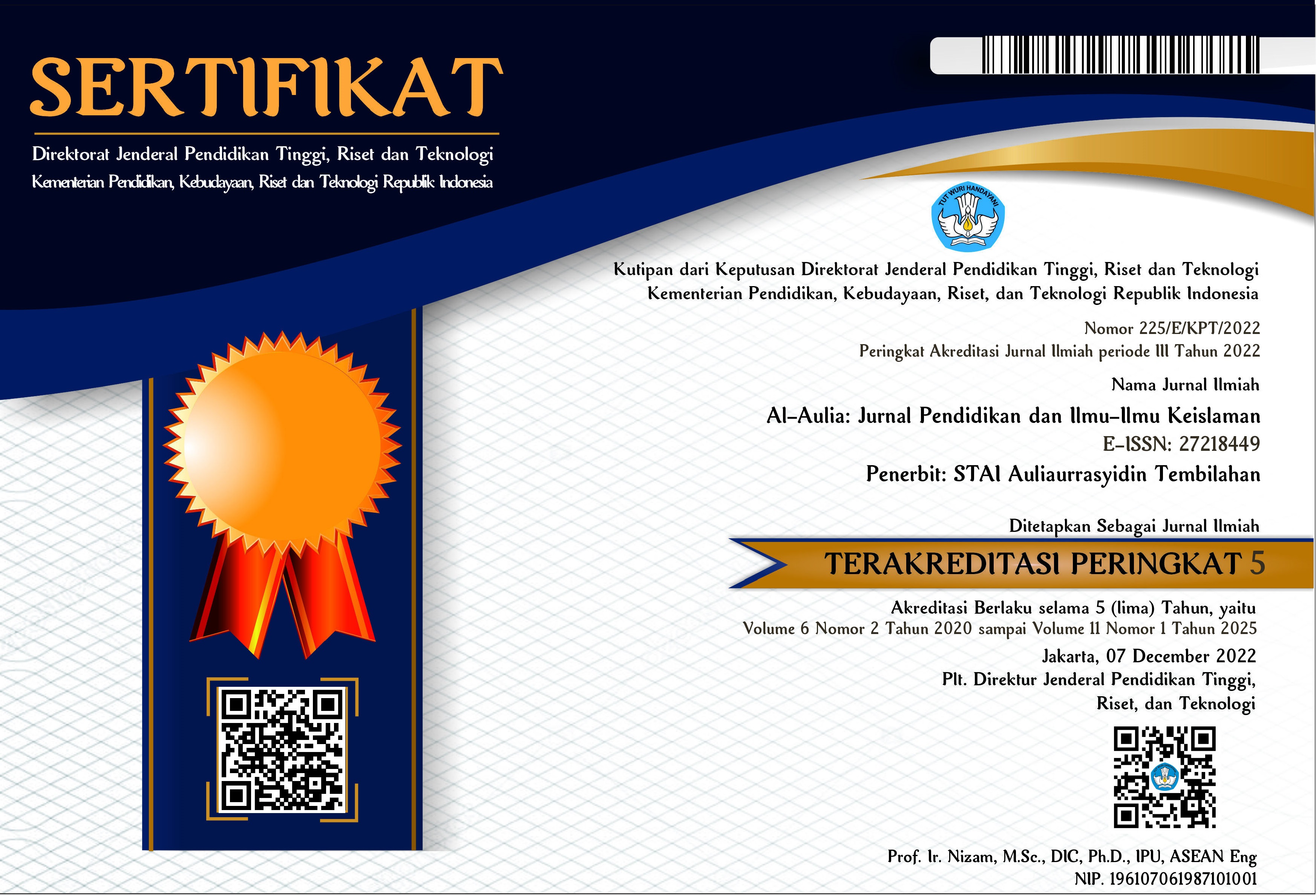PERAN STRATEGIS ‘AMIL ZAKAT DALAM MEMASTIKAN EFEKTIFITAS IBADAH ZAKAT YANG BERORIENTASI KESEJAHTERAAN SOSIAL
Keywords:
Amil Zakat, methodology, social welfareAbstract
Changes and developments in legal conclusion of law must be preceded by studies that respect to certain legitimate methods and rules; likewise, ‘Amil Zakat. Essentially, its conceptual existences and fundamentals have been provided by Shari'ah texts, both in the A-quran, Hadith, yet in Atsar transmissions. In a normal circumstance, legal actions for managing zakat through Amil can be applied directly. However, the development of the zakat theory, the increase of business incomes, quality change of “rich” meanings, the difference of place and time, the potential quantity of revenue and distribution, also generate the changes of the study about ‘Amil Zakat. The ideal idea of the Al-Qur’an utilized "property does not revolve on rich people only", or the proclamation, which the Prophet asserted, "taken from the rich to be returned to the poor", indicates the role that must be played in worship of zakat. In this case, ‘Amil Zakat is the determining factor. Thus, establishing an applicative concept of ‘amil zakat is theoretically necessary to ensure that social and community roles can be carried out by ‘Amil Zakat as part of the implementation of the idea of shari'ah.
This article seeks to explore the theories of ‘amil zakat by utilizing legal reasoning of methodologies available to predict aspects of zakat management by ‘Amil Zakat which is social welfare oriented.
Downloads
Published
Issue
Section
License
Authors who publish with this journal agree to the following terms:
1. Copyright on any article is retained by the author(s).
2. The author grants the journal, right of first publication with the work simultaneously licensed under a Creative Commons Attribution License that allows others to share the work with an acknowledgment of the work’s authorship and initial publication in this journal.
3. Authors are able to enter into separate, additional contractual arrangements for the non-exclusive distribution of the journal’s published version of the work (e.g., post it to an institutional repository or publish it in a book), with an acknowledgment of its initial publication in this journal.
4. Authors are permitted and encouraged to post their work online (e.g., in institutional repositories or on their website) prior to and during the submission process, as it can lead to productive exchanges, as well as earlier and greater citation of published work.
5. The article and any associated published material is distributed under the Creative Commons Attribution-ShareAlike 4.0 International License







